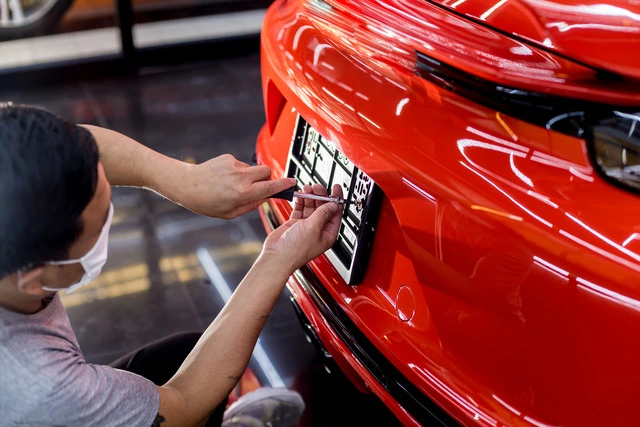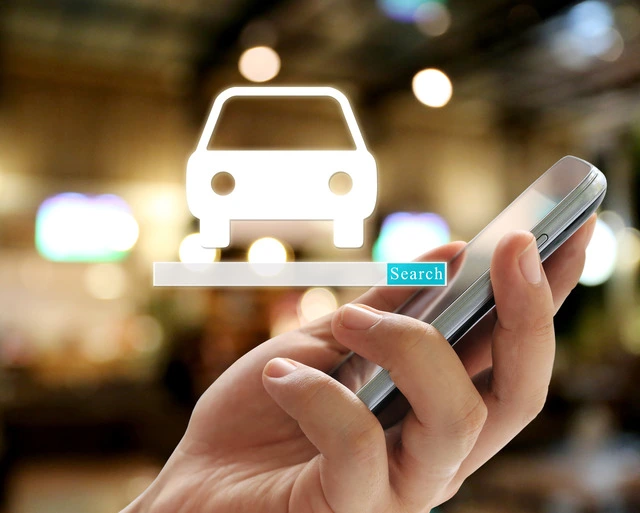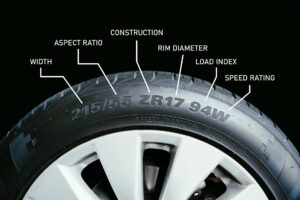There is no doubt that car buying scams are becoming increasingly common, and it’s important for car buyers to be aware of the potential risks involved when shopping for a vehicle. Unfortunately, there are many ways buyers can be scammed into buying a car that is not in good condition or paying for the car at a much higher price than it should. Let’s see some of the most common car-buying scams and how you can prevent some of them from happening to you.
There are many ways you can be scammed into buying a car that has something wrong with it. For example, a car with a bad relay or some other underlying problem. But when we buy used cars, we take extra precautions and make sure we check everything from brake fluids to the car thermostat. But even if we check everything, we can be scammed in so many other ways. Here are all the red flags you should look out for and how to avoid them.
Red Flags to Be Aware of When Buying a Car
Buying a car on secondary markets can be a great way to find a deal and a great car for a lower cost. However, these kinds of purchases come with high risks of financial fraud or scams if you don’t get what you paid for. It can happen that the car you are buying has some underlying problems or issues that will cost you more in the long run to fix them.
The possibility of getting ripped off on the secondary market makes it crucial to be familiar with all the red flags that indicate something is shady with the transaction you are about to make. Here are some of the most common scams you can come across when buying a car.
Odometer Fraud
No matter if you are buying the best car for women or maybe some car for off-road driving, one of the most important things you need to check is the odometer. The odometer measures the mileage that the car has, and as you may know, the mileage is one of the crucial indicators of the car’s value. The big number means that the engine worked more and that the chances of it breaking are bigger.
When the mileage is higher than 100,000, the greater are the chances that the car and engine will need expensive and frequent maintenance. There are ways this number on the odometer can be reduced to show a smaller mileage than it is, and you end up paying more for the car’s actual worth.
Title Washing
Even though there are a lot of people who would buy a car with a salvage title, if you don’t know that the car you are about to buy has suffered total damage, buying this car would be a fraud. In essence, you would pay a lot more for a car that cost a lot less. Many scammers will do something called title washing or erasing the history of the car or only the negative part of it. This is an illegal act, but many scammers would do this. It can happen that the vehicle has been moved across state lines where certain brands are not recognized. Always ask for a vehicle identification number (VIN) and ask insurance companies if they have a record of that car.
VIN Removing
As you may know, each car, no matter if it is a Tesla Model Y or any other car, has a Vehicle Identification Number, a unique number that is designated to that car alone. With this number, you can track the car’s history, register a car, and more. Like you can remove a car emblem or even a dealer sticker, a VIN can be removed from the car as well.
VIN removal and cloning happen when a scammer tries to sell a stolen car or a car with a salvage title by erasing the VIN number from the car or providing the VIN number from another car that is not stolen. If you buy a vehicle that is stolen with a false VIN, it can happen that the car is repossessed and returned to its previous owner, and you end up without money or a vehicle. For this reason, it is crucial not to buy a car without a VIN number or a suspicious VIN number that hasn’t been checked.
Lowballing is Always a Bad Sign
Lowballing is a car-buying scam that involves a seller offering a buyer a price for a vehicle that is significantly lower than the market value. It can happen that the seller truly wants to get rid of a car as soon as possible, which is why the price is low, but in most cases, a lower price is a sign that something is wrong with the car. Sellers that offer lower prices may even rush you to purchase the car as soon as possible, giving you an even lower price hoping that you will not ask any more questions.
Curbstoning – When a Dealer Isn’t a Dealer
Curbstoning is a car-buying scam that involves the sale of used cars by unlicensed dealers. The scam involves the seller posing as a private seller when in reality they are an unlicensed dealer. The seller will often advertise the car at a lower price than what a licensed dealer would charge, making it seem like a great deal. However, the car may be in poor condition and may not have been properly inspected or serviced. Additionally, the seller may not provide the buyer with a valid title or registration, making it difficult to register the car in the buyer’s name.
Curbstoning is illegal in many states, as it is considered a form of fraud. It is important for buyers to be aware of this scam and to take steps to protect themselves. Buyers should always verify the seller’s identity and make sure they are licensed dealers. They should also ask for proof of ownership and a valid title or registration. Additionally, buyers should have the car inspected by a qualified mechanic before making a purchase.

Common Financial Scams When Buying or Selling a Car
In any financial transaction, you may become a victim of scammers, and the same is when buying a car. These scams usually happen when buyers want to make shortcuts and purchase cars on the secondary market from a third party. However, there are some really sophisticated scams where you can become a victim, where buyers lower their guard and trust their money in scammers’ hands. So read carefully the following examples of the most common financial scams when buying a car.
Escrow Scam
One of the ways scammers can make buyers lower their guard and give money in advance is through escrow scams. In this scam, the scammer will typically contact the buyer and offer to facilitate the purchase of a car through an escrow service. The buyer will then be asked to deposit money into the fake escrow account, which the scammer will then use to purchase the car. However, the scammer will never actually purchase the car and the buyer will never receive the vehicle. In this scam, scammers will even provide escrow account information, fake documents, and even a fake car recipe in order to trick buyers to deposit money.
Fake Cashier’s Check
Fake Cashier’s Check
Another common scam is fake personal or cashier’s checks. Scammers will offer checks as a payment method to get the car and title, only for sellers to realize the check is fake too late. To avoid this scam, make sure you check if the check is legitimate before handing out the car.
ACH Transfer
ACH transfer is a common way to make money transactions throughout the bank. But sellers of the car can be tricked because ACH transfers usually last longer than one day. The buyer of the car can make a money transaction that is completely true and legit. However, since this transfer lasts longer, you will not see the money in your account immediately.
The seller will give the car and the title thinking that the money will be in the account in a couple of days. The buyer can then cancel the transaction leaving you without a car or money. This is theft, and it is illegal, but in most cases, scammers like this know how to protect themselves. So to avoid this scam, make sure you have received the money before handing out the car.
Overpayment Scams
In this scam, the buyer tells the seller that someone else owes him more money than the car’s actual worth and that that person will pay for the car instead. In essence, the buyer is providing an uncollected debt as a form of payment. You should never accept this kind of offer because you will probably never see the money and your car again, and nobody can even protect you from this scam.
How to Avoid Scams When Buying a Car?
As you can see, most of these scams happen on the secondary market when buying a car from an unknown person or with dealers that are not licensed. However, there are ways you can protect yourself from being scammed. Here are some steps every car buyer must know, like knowing the difference between summer and winter tires or what is a catalytic converter:
- Research the vehicle – Before you buy a car and try out some of the most famous USA routes, make sure to research the vehicle thoroughly. Check the vehicle’s history, including its service records, accident reports, and any recalls. This will help you determine if the car is in good condition and if it is worth the price.
- Get a vehicle history report – A vehicle history report can provide you with important information about the car, such as its title, odometer readings, and any accidents or repairs. This report can help you make an informed decision about the car.
- Get an inspection – Before you purchase a car and start wondering why car prices are so high, it is important to get a pre-purchase inspection so the cost of your car doesn’t become even higher. A qualified mechanic can inspect the car and identify any potential problems. This will help you avoid buying a car with hidden issues.
- Don’t pay in cash – When purchasing a vehicle, it is important to avoid paying in cash. We know that paying in cash can be a lot faster and that you are eager to take your car for a first wash. Paying in cash makes it difficult to track the transaction and can make it easier for scammers to take advantage of you. Instead, use a credit card or check to make the purchase.
- Don’t sign anything without reading it – Before you sign any documents, make sure to read them carefully. Scammers may try to include hidden fees or other charges in the paperwork. Make sure you understand all the terms and conditions before signing anything.

What to Do if You Are Scammed?
No matter what kind of scam you have been the victim of, the only thing you can do is report it to the police and hope for the best. But in most cases, the best is to prevent any scam from happening. So if you feel like something is fishy or shady, don’t sign anything or give money. The best is to go through your local dealer that is well known. Or, if you are buying a car from a third party, make sure you double-check all the documents and pass all the steps we have listed above. Make sure you get the ID of the seller and that everything is written on an authorized contract.








